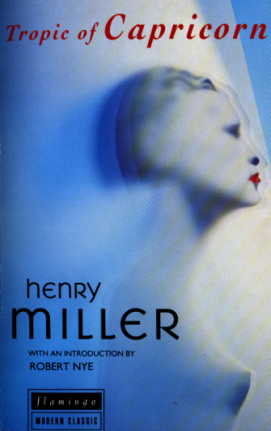
Henry Miller
was born in 1891 in Brooklyn, New York. He had a variety of jobs as a young man, including several years working for the Western Union Telegraph Company. During this time, encouraged by June Mansfield Smith, the second of his five wives. Miller began to write. Aside from articles, stories for pulp magazines and prose poems, Miller worked on his first novels. Crazy Cockand Moloch,and on the copious notes which would eventually transmute into the notorious 'Tropics' books.In 1930, Miller went to live in Paris. For the next ten years he mingled with impoverished expatriates and bohemian Parisians, including Brassai, Artaud and Anais Nin, with whom he had a much documented affair. His first published book. Tropic of Cancer,appeared in 1934 from the Obelisk Press in Paris. It was followed five years later by its sister volume. Tropic of Capricorn.Sexually explicit, these books electrified the European literary avant-garde, received praise from Eliot, Pound, Beckett and Durrell, but were almost universally banned outside France.Miller returned to America in 1940, settling in Big Sur, California. Here, he wrote the 'Rosy Crucifixion' trilogy - Sexus(1949), Plexus(1953) and Nexus(1959) but, regarded by many as a writer of 'dirty books', he was unable to get his major works published in America. In 1961, after an epic legal battle. Tropic of Cancerwas finally published in the States (in England in 1963). Miller became a household name, hailed by the Sixties counterculture as a prophet of freedom and sexual revolution. With the subsequent unbanning of the rest of his books, Miller's work was finally available in his own country.He died on June 7 1980.
BY E SAME AUTHOR
Tropic of Cancer
Tropic of Capricorn
Black Spring
Aller Retour New York
The Cosmological Eye
The Colossus of Maroussi
The Air-Conditioned Nightmare
Quiet Days in Clichy
Sexus
Plexus
Nexus
Big Sur and the Oranges of Hieronymous Bosch
The Books in my Life
A Devil in Paradise
The Wisdom of the Heart
My Life and Times
The World of Sex
Crazy Cock
Moloch
MODERN CLASSIC
HENRY MILLERTropic of CapricornWith an introduction by Robert Nye Flamingo
An Imprint of HarperCollins
Puhlishers Flamingo An Imprint of HatperCollins
Publishers 77-85 Fulham Palace Road, Hammersmith, London W6 8JB
A Flamingo Modem Classic 1993 98765
Previously published in paperback by Grafton 1966 Reprinted 14 times
First published in Great Britain by John Calder (Publishers) Limited 1964
Copyright 0 Henry Miller 1957 Introduction copyright O Robert Nye 1993
ISBN 0 00 654584 X Set in Plantin
Printed and bound in Great Britain by Caledonian International Book Manufacturing Ltd, Glasgow This book is sold subject to the condition that it shall not, by way of trade or otherwise, be lent, re-sold, hired out or otherwise circulated without the publisher's prior consent in any form of binding or cover other than that in which it is published and without a similar condition including this condition being imposed on the subsequent purchaser.
INTRODUCTION by Robert Nye Henry Miller's first book.
Tropic of Cancer, was published in Paris in 1934 and was immediately banned in all English-speaking countries. With its sequel.
Tropic of Capricorn (1939), which actually covers an earlier period in Miller's life, it makes up a running fictional autobiography remarkable for its candour, gusto, and completeness. The two books have in common a plain-spoken truthfulness, a good-hearted comedy, and a quality of joy discovered somewhere on the far side of despair, things that their author was seldom to match and never to surpass in later self-unravellings. When the 'Tropics' were at last made generally available in Britain and America in the Sixties, they were praised as works of sexual liberation. Since then they have sometimes been attacked as works of sexual misogyny. All this seems to me rather to miss the point, as does criticism of the two books for their verbal extravagance and their lack of art. Probably it is no accident that nobody was ever indifferent concerning Henry Miller. There are those who love him and there are those who hate him. His work does not allow of the mild alternatives of liking or disliking. A case could be made that this itself constitutes a fault, but I prefer to find a virtue in such passion, and an important one. The Miller that emerges from the books is, to my mind, an honest and lovable person, splendidly undefeated by experience, a man with an unquenchable appetite for the fundamental realities, and an infinite capacity for being surprised by his own innocence. If there is any message extractable from his work it is that of someone who - against all the odds and in spite of most of the evidence - says 'More' to life. This I find honourable. Even in the 'Tropics' Miller is, of course, an extraordinarily diffuse and uneven writer. He repeats, paraphrases, and parodies himself with an abandon that in a lesser spirit would be suicidal. He is sometimes brutal, he is often sentimental. But having said that, I have said most of what might be said against him. The best pages here, as in his one other great work.
The Colossus of Maroussi (1941), are white-hot and inspired, both funny and terrible, a man's attempt to tell the whole truth about the life that he has known. Miller is one of the few modern writers who can move a reader to tears, quite simply, by the pressure of his own feeling. He can also communicate, and induce in the reader, a delicious delight in the fact of being alive. I never read Miller on song without feeling better, happier, more myself and less alone, for having done so.
On the ovarian trolleyForeword to Historia Calamitatum
(the story of my misfortunes)Often> the hearts of men and women are stirred, as likewise they are soothed in their sorrows, more by example than by words. And therefore, because I too have known some consolation from speech had with one who was a witness thereof, am I now minded to write of the sufferings which have sprung out of my misfortunes, for the eyes of one who, though absent, is of himself ever a consoler. This I do so that, in comparing your sorrows with mine, you may discover that yours are in truth nought, or at the most but of small account, and so you shall come to bear them more easily. >
Peter Abelard NCE you have given up the ghost, everything follows with dead certainty, even in the midst of chaos. From the beginning it was never anything but chaos: it was a fluid which enveloped me, which I breathed in through the gills. In the sub-strata, where the moon shone steady and opaque, it was smooth and fecundating; above it was a jangle and a discord. In everything I quickly saw the opposite, the contradiction, and between the real and the unreal the irony, the paradox. I was my own worst enemy. There was nothing I wished to do which I could just as well not do. Even as a child, when I lacked for nothing, I wanted to die: I wanted to surrender because I saw no sense in struggling. I felt that nothing would be proved, substantiated, added or subtracted by continuing an existence which I had not asked for. Everybody around me was a failure, or if not a failure, ridiculous. Especially the successful ones. The successful ones bored me to tears. I was sympathetic to a fault, but it was not sympathy that made me so. It was a purely negative quality, a weakness which blossomed at the mere sight of human misery. I never helped any one expecting that it would do any good; I helped because I was helpless to do otherwise. To want to change the condition of affairs seemed futile to me; nothing would be altered, I was convinced, except by a change of heart, and who could change the hearts of men? Now and then a friend was converted; it was something to make me puke. I had no more need of God than He had of me, and if there were one, I often said to myself, I would meet Him calmly and spit in His face. What was most annoying was that at first blush people usually took me to be good, to be kind, generous, loyal, faithful. Perhaps I did possess these virtues but if so it was because I was indifferent: I could afford to be good, kind, generous, loyal, and so forth, since I was free of envy. Envy was the one thing I was never a victim of. I have never envied anybody or anything. On the contrary, I have only felt pity for everybody and everything. From the very beginning I must have trained myself not to want anything too badly. From the very beginning I was independent, in a false way. I had need of nobody because I wanted to be free, free to do and to give only as my whims dictated. The moment anything was expected or demanded of me I balked. That was the form my independence took. I was corrupt, in other words, corrupt from the start. It's as though my mother fed me a poison, and though I was weaned young the poison never left my system. Even when she weaned me it seemed that I was completely indifferent, most children rebel, or make a pretense of rebelling, but I didn't give a damn, I was a philosopher when still in swaddling clothes. I was against life, on principle. What principle? The principle of futility. Everybody around me was struggling. I myself never made an effort. If I appeared to be making an effort it was only to please someone else; at bottom I didn't give a rap. And if you can tell me why this should have been so I will deny it, because I was born with a cussed streak in me and nothing can eliminate it. I heard later, when I had grown up, that they had a hell of a time bringing me out of the womb. I can understand that perfectly. Why budge? Why come out of a nice warm place, a cosy retreat in which everything is offered you gratis? The earliest remembrance I have is of the cold, the snow and ice in the gutter, the frost on the window panes, the chill of the sweaty green walls in the kitchen. Why do people live in outlandish climates in the
Next page
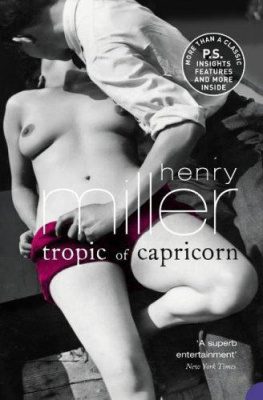
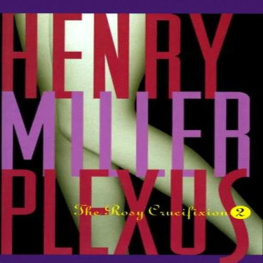
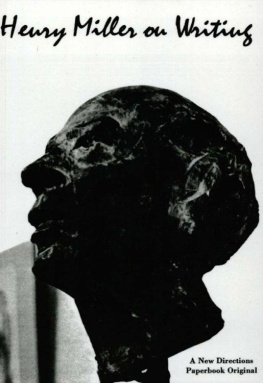
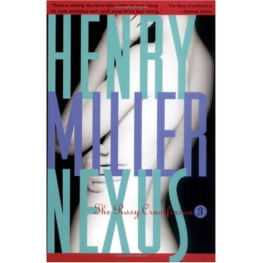
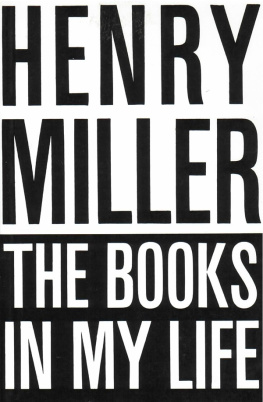


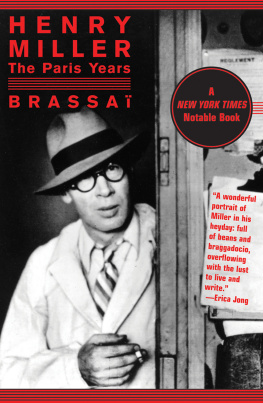
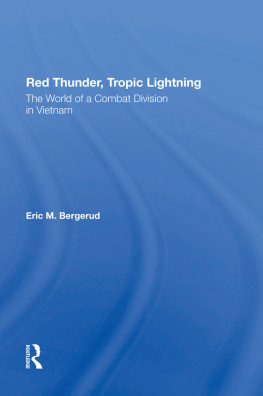

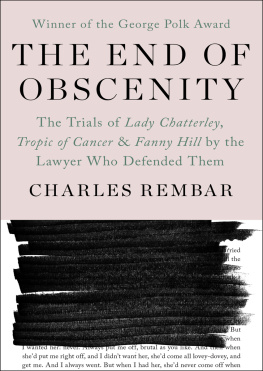
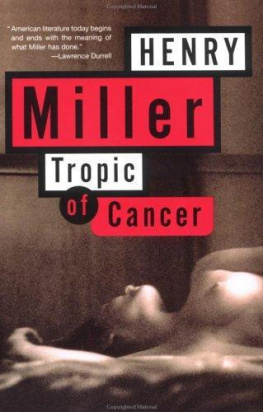
 Henry Miller
Henry Miller